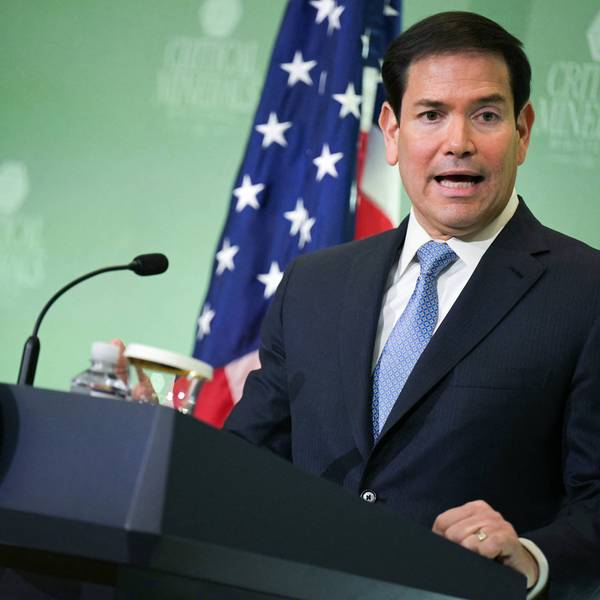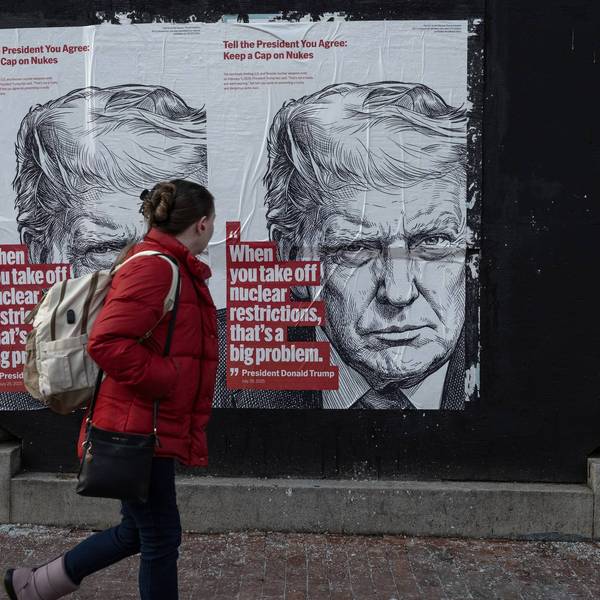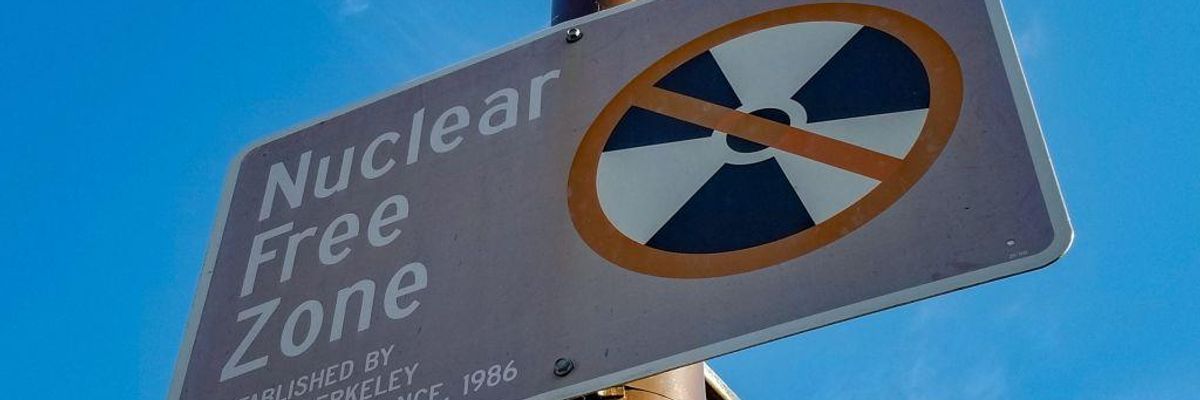Saturday, October 24th marked the 75th anniversary of the founding of the United Nations, 75 years following the nuclear bombs dropped on Hiroshima and Nagasaki. This October 24th will go down in history as the day nuclear weapons were declared illegal with the ratification of the U.N. Treaty on the Prohibition of Nuclear Weapons. The United Nations was founded to promote world peace and security. There is no greater existential threat to our peace and security than the existence of nuclear weapons. And now they are banned.
With Honduras delivering the 50th ratification of the treaty on Saturday, the world has spoken and the global community has banned these most dangerous of weapons as it has previously banned other weapons of mass destruction: chemical, biologic, landmines and cluster munitions.
This Treaty came about following years of stalemate and incremental movement toward disarmament by the nuclear nations despite being treaty-bound for 50 years by Article VI of the nuclear Non-Proliferation Treaty (NPT) to work in "good faith" to abolish their nuclear arsenals. With this current treaty, nuclear weapons are now illegal and those nations who have them, store them, develop them, fund them or threaten their use will now be in breach of international law.
The movement that resulted in this Treaty has literally been 75 years in the making. As a result of the intransigence of the nuclear nations to meet their obligations a series of three international conferences were convened. These conferences addressed the humanitarian impact of nuclear weapons demonstrating the potential for global nuclear famine from even a limited regional nuclear war and the reality that like climate change, the effects of nuclear weapons did not recognize national boundaries but rather had potential global catastrophic effects.
The conferences were held in Oslo Norway in 2013, followed in February 2014 by a second conference in Nayarit Mexico with a final gathering in Vienna in December 2014 which for the first time included representatives of the US and the United Kingdom. All three were attended by delegations from the International Committee of the Red Cross, and representatives of Pope Francis and were organized in cooperation with the International Campaign to Abolish Nuclear Weapons, a coalition of civil society groups which won the Nobel Peace Prize in 2017 for this work.
At the final conference the Austrian government launched the "Humanitarian Pledge" promising to develop a nuclear weapons ban treaty. This was followed in 2017 when the U.N. held meetings to negotiate a treaty which would for the first time take into account the legacy of the nuclear era, including the health effects on the Hibakusha, the victims of the nuclear bombings, and on those impacted by the mining, testing, and development of these weapons. Consideration was given to the disproportionate impact on girls, women and the elderly and indigenous communities living near nuclear testing sites. The treaty, which came to be known as the Treaty on the Prohibition of Nuclear Weapons, was adopted on July 7, 2017 by 122 nations with the Netherlands voting no and Singapore abstaining. The Treaty opened for ratification on September 20, 2017.
With Saturday's 50th ratification, the Treaty will enter into force in 90 days later on January 22. At that point, nuclear weapons will still exist, but the global community will have a powerful new tool to stigmatize those nations that continue to have them, and the financial institutions and corporations that fund and develop these weapons. Each of us has a role to play in the abolition of these weapons. Our individual role is not necessarily a large role or a small role, it is our role and it is vital.
In the U.S., there is a grassroots movement sweeping across the country endorsed by the medical, scientific, religious and NGO communities similar to the international ICAN campaign. This "Back from the Brink" grassroots campaign has been endorsed by 47 cities including Los Angeles, 6 state legislative bodies including California's Assembly and Senate and 344 organizations. This call to prevent nuclear war supports the ban treaty and calls on the United States to lead a global effort by: 1) Renouncing the option of using nuclear weapons first 2) Ending the sole, unchecked authority of any president to launch a nuclear attack 3) Taking the U.S. nuclear weapons of hair-trigger alert 4) Cancelling the plan to replace its entire arsenal with enhanced weapons 5) Actively pursuing a verifiable agreement among nuclear-armed states to eliminate their nuclear arsenals.
The Treaty on the Prohibition of Nuclear Weapons delivers a clear message from nations across the globe that nuclear weapons threaten the survival of all of humanity and must be eliminated before they eliminate us. The US needs to embrace this treaty and follow the clear path to nuclear abolition laid out by the Back from the Brink campaign. Most importantly it must state unequivocally that it truly seeks the security of the world free of nuclear weapons and it must actively pursue negotiations with the other nuclear armed states for an enforceable, verifiable, time bound agreement to dismantle the 14,000 nuclear warheads that remain in the world today. Such an effort must be America's highest national security priority.




